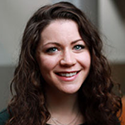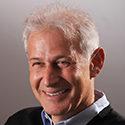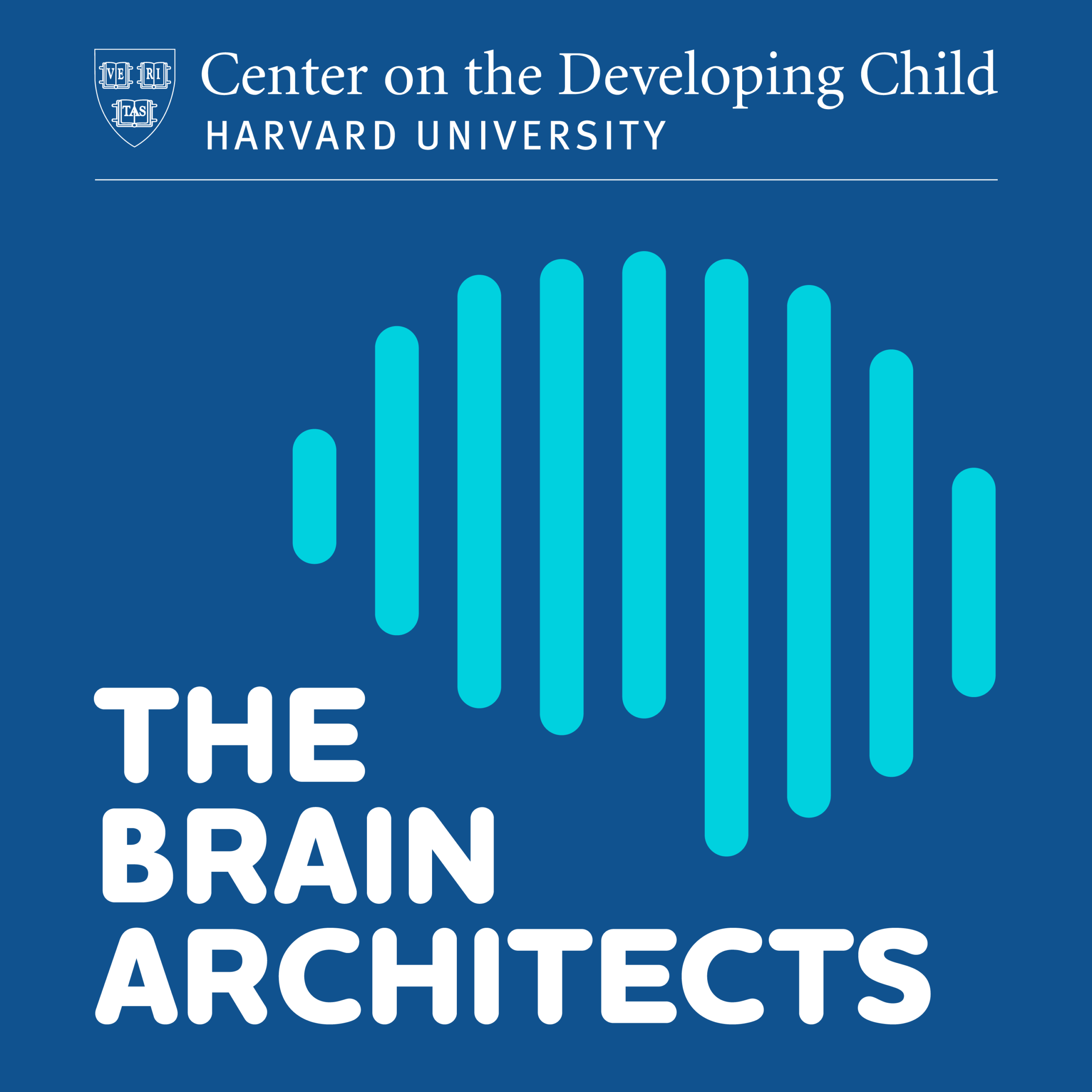COVID-19 Special Edition: How Do We Rebuild and Re-Envision Early Childhood Services?
Description
The devastating toll of the pandemic has underscored the critical importance of connecting what science is telling us to the lived experiences of people and communities. In March of 2020, we recorded episodes exploring the impact the coronavirus pandemic could have on child development. Now, a year later, we wanted to continue these conversations and discuss what we’ve learned, what needs to change, and where we go from here.
The first guest in this 4-part special series is Center Director Jack P. Shonkoff, M.D. He and host Sally Pfitzer discuss what COVID-19 revealed about the needs of caregivers with young children or during pregnancy, what we learned about the importance of science over the course of the pandemic, and how we can make changes going forward.
Upcoming episodes of this series will feature expert speakers reflecting on the pandemic’s impact on pediatric and mental health systems, and the longstanding social policies and systemic racism that resulted in the pandemic disparately impacting communities of color. The experts will discuss how we can take what we learned over the past year and make meaningful changes that will improve outcomes for children and families. Subscribe below via your podcast platform of choice to receive all new episodes as soon as they’re released.
Speakers
<figure id="attachment_4958" aria-describedby="caption-attachment-4958" style="width: 125px" class="wp-caption alignnone">
 <figcaption id="caption-attachment-4958" class="wp-caption-text">Sally Pfitzer, Podcast Host</figcaption></figure>
<figcaption id="caption-attachment-4958" class="wp-caption-text">Sally Pfitzer, Podcast Host</figcaption></figure><figure id="attachment_4959" aria-describedby="caption-attachment-4959" style="width: 125px" class="wp-caption alignnone">
 <figcaption id="caption-attachment-4959" class="wp-caption-text">Dr. Jack Shonkoff, Center Director</figcaption></figure>
<figcaption id="caption-attachment-4959" class="wp-caption-text">Dr. Jack Shonkoff, Center Director</figcaption></figure>Additional Resources
Resources from the Center on the Developing Child
- Re-Envisioning, Not Just Rebuilding: Looking Ahead to a Post-COVID-19 World
- The Brain Architects: COVID-19 Special Edition: A Different World
- Working Paper 15: Connecting the Brain to the Rest of the Body: Early Childhood Development and Lifelong Health Are Deeply Intertwined
- InBrief: Connecting the Brain to the Rest of the Body
- Health and Learning Are Deeply Interconnected in the Body: An Action Guide for Policymakers
- What Is Inflammation? And Why Does it Matter for Child Development?
- How Racism Can Affect Child Development
- Moving Upstream: Confronting Racism to Open Up Children’s Potential
- A Guide to COVID-19 and Early Childhood Development
Transcript
Sally: Welcome to The Brain Architects, a podcast from the Center on the Developing Child at Harvard University. I’m your host Sally Pfitzer. In March of 2020, we recorded episodes exploring the impact the coronavirus pandemic could have on child development. You may remember we discussed the importance of self-care for caregivers, and the importance of physical distancing, not social distancing. And now a year later, we wanted to continue those conversations and discuss what we’ve learned, what needs to change, and where we go from here.
Joining us today is Dr. Jack Shonkoff, Director of the Center on the Developing Child. Jack, we really appreciate you being here, and I know we have a lot to cover, so let’s jump right in. Could you tell us what COVID-19 has revealed about the needs of young children, families and people who are pregnant?
Dr. Shonkoff: So immediately, we saw the difference between people who had access to resources that helped them get through and those who before the pandemic were always at the edge and that this put families over the edge in terms of meeting basic needs—food, clothing, housing. But then, there’s the other universal experience of the critical importance of supportive relationships—the critical importance of extended family, neighbors, friends—and the extent to which every parent, regardless of your circumstances, cannot parent a child alone. And the social isolation that so many people felt, from the poorest to the wealthiest.
And so, I think if there’s anything good to take out of this past year, it’s a recognition of the universal needs that all families have to provide a healthy environment for their children, but the tremendous inequalities in resources and buffers and supports that we could all turn to when we are faced with really unusual hardships. So, it’s this balance between kind of universal experience and highly unequal consequences that I think are the lessons from the past year.
Sally: Could you tell us what we’ve learned about science over the course of this pandemic? And especially, how that science relates to what children need.
Dr. Shonkoff: Our work has been deeply grounded in the importance and the value of bringing credible, trusted, scientific knowledge to the table in addressing all of the challenges and opportunities that face families with young children, especially families who are dealing with excessive adversity or burdens. And this past year, has been a real eye-opening experience I think for all of us about both the critical importance of trusted, credible science in the face of threats to our health and well-being and the very significant limitations on how that science can provide direction or guidance about how to move forward.
We certainly learned this past year, not only that science doesn’t always have all of the answers—and especially at the beginning of problem—but that science doesn’t stand still, and that we depend upon science to keep moving forward. And we also have to learn how to make decisions based on incomplete science and based on the best science we have. And in many ways, we’ve always known that. We know that there aren’t answers to every problem. But I think one of the really very complex and and sobering lessons we learned this past year is how science has to be aligned with the lived experiences and the values and beliefs of the population. Because when it isn’t aligned, people can choose to not only not believe in the science, but to adopt alternative perspectives that try to delegitimize science.
So, for me personally, and certainly for the work of our center, this is a real time to just step back and try to figure out how we can maximize the contributions of science and we can leverage cutting-edge science that has solutions—or partial solutions—to our problem, without expecting that science will have all the answers. And certainly, for those of us at the Center on the Developing Child, kind of recognize both the limitations of the science at any time and the power of the science to guide us in more effective approaches to deal with any of the challenges we’re facing.
Sally: Looking forward, what can we do? How can we make changes?
Dr. Shonkoff: We’ve all learned a lot about how much the health of any society depends upon a sense of shared responsibility for each other. To get through this together. Whether it be people caring about their communities, decision leaders caring about the well-being of the country. I think we’ve learned simultaneously that we are all in this together and we all have shared vested interests and we are not all in this with equal resources and equal assets. And this has not just been about the pandemic. We have had the converging crises of an infection out of c





